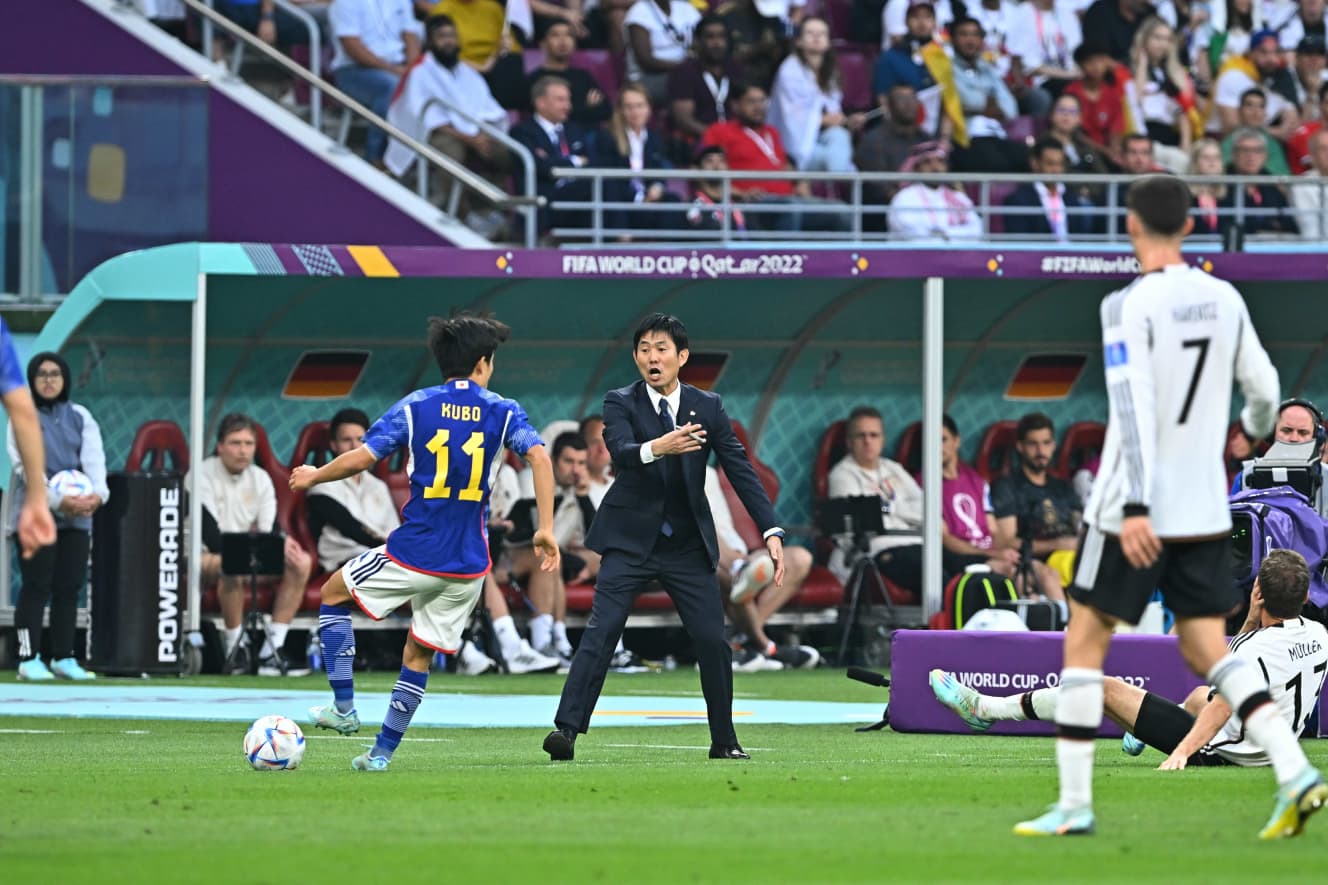The “System Change” and “Two Data” Behind Japan’s Big Golden Star

The second match against Costa Rica, which will be played to advance past the group stage, will kick off at 19:00 on November 27.
In the first match against Germany, Moriyasu Japan defeated the four-time champions with a brilliant performance. It was a great victory that defied most expectations. Ahead of the fateful second match, we analyzed once again the reasons for Japan’s victory, and found that Moriyasu’s precise leadership and two surprising pieces of data were revealed.
Japan was overwhelmed by Germany and trailed 0-1 in the first half. In the second half, however, Japan drastically changed their style of play and adopted an ultra-aggressive formation, scoring two goals in a blistering fashion. Sports journalist Jun Nakayama attributes the victory to this formation change.
In the first half, Germany took the lead because Japan could not get the ball away from their opponents,” said Jun Nakayama, a sports journalist. So, Moriyasu changed the back four in the first half to a back three. Generally speaking, a back three is considered a defensive tactic. Why did he choose a defensive formation when they were one goal behind? In the first half, Germany had the same 4-2-3-1 formation as Japan. In the first half, Germany played a 4-2-3-1 formation, the same as Japan, but by skillfully changing to a 3-2-3-1 formation, they dared to create a mismatch with Japan’s formation, confusing Japan’s defense.
Moriyasu, therefore, made the back three to clarify the markings and eliminate the mismatches, first stabilizing the defense. This enabled us to win the ball, and then he made a series of changes to the left and right wing backs from Nagatomo (Yuto, 34) and Sakai (Hiroki, 32) to Mitomo (Kaoru, 25) and Ito (Junya, 29), increasing the number of offensive players. We were able to turn the game around after only about 10 minutes.

In addition to the system change, there was one surprising piece of data that contributed to Japan’s victory. These are the “duel win ratio,” which measures whether or not a team can win the ball in a one-on-one situation, and the “long pass ratio,” which indicates the percentage of long balls out of all passes. Japan’s duel win ratio was 51.5%, higher than Germany’s 47%. Japan’s long pass ratio was a whopping 20.1%, compared to Germany’s 6.1%. Nakayama continued.
Germany’s ball control rate was overwhelmingly over 70%. But Japan was able to persevere at the edge of the ball even though they were in a difficult situation. This was reflected in the duel win percentage. That is why they were only able to score one goal, which led to a comeback in the second half.
I could also see Japan’s aim in using a lot of long passes. Against a German team with a well-developed midfield, connecting passes carefully would be a risk of losing the ball. Therefore, they decided to use many long passes. Especially in the second half, when we changed the system, after winning the ball, we did not hesitate to make long passes into the space and omit the midfield. There, Asano (Takuma, 28), Ito, and It was a tactic in which players such as Asano (Takuma 28), Ito, and Mitake received the ball in space. We dared not to connect with clean passes, so we had less competition with the German players.”
It should not be overlooked that midfielder Wataru Endo (29) played tenacious soccer and contributed greatly to the victory. He is so stable defensively that he became the “Duel King” in the Bundesliga two years in a row. In the second half against Germany, the final attackers were down to six men. The key to the defense was the volleyball player Endo.
Endo was the most effective player in the match. Even when the Germans were on the attack, his stamina, range of play, and strength on the ball were outstanding, and he played almost as well as two of the players. He also covered the workload of Ao Tanaka, who was exhausted from defending after losing a penalty kick in the first half. It is no exaggeration to say that that is how they managed to score only one goal. Without Endo, it is quite possible that more goals would have been scored and the game would not have been reversed. The data of nine ground duels won and two air duels won shows the importance of Endo in this match,” said Nakayama.
The Japanese national team accomplished a giant-killing against the strongest opponent. We hope that they will continue their momentum and win the match against Costa Rica.
Photo: Photo by JMPA representative